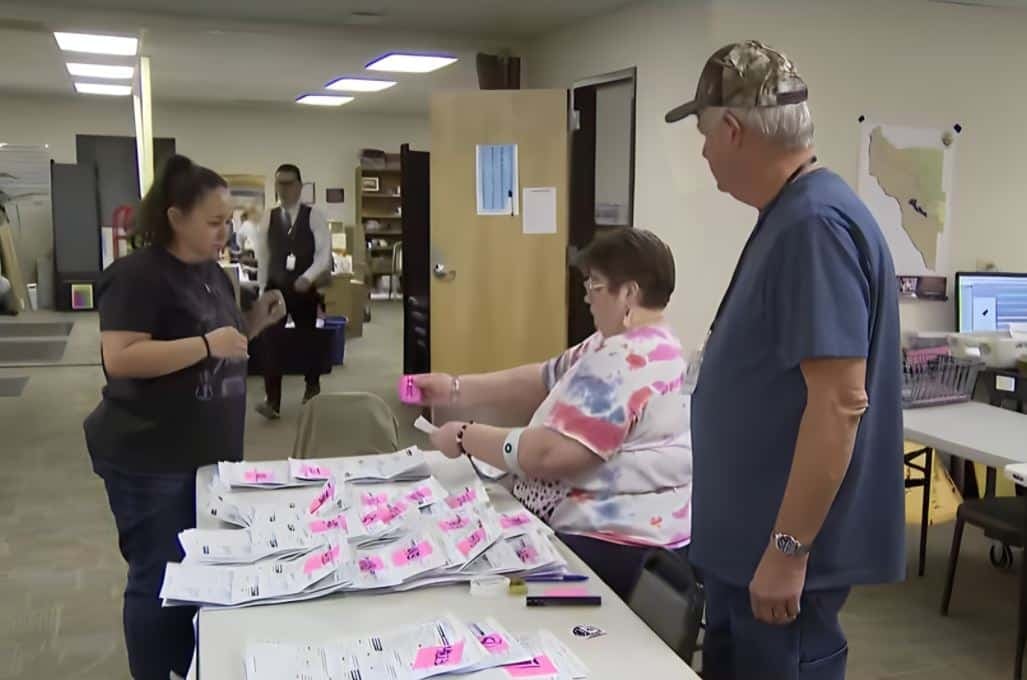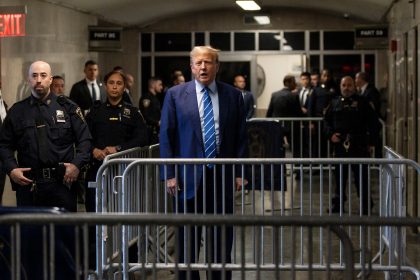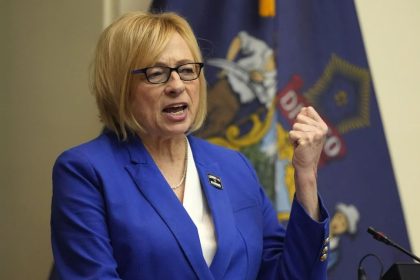Idaho Poised to Nix Use of Student IDs for Voting

BOISE, Idaho — Idaho is a signature away from removing a student ID issued by a high school, college or university from the list of acceptable forms of identification to vote in elections in the state.
Last week, the Republican-controlled Idaho state Senate voted to strike student IDs from the list, and because the House had already passed the measure, the legislation next moves to the governor’s desk for his consideration.
Madison Hardy, press secretary for Idaho Gov. Brad Little, told The Well News Wednesday the legislation has yet to arrive in his office, and gave no indication whether he’d sign or veto it or simply allow it to become law without his signature.
She also said anyone interested in the fate of the bill will ultimately find it on the daily tracking sheet posted to the governor’s office website.
Idaho state Sen. Scott Herndon, a Republican who sponsored the bill in his chamber, said during floor debate that he did so because of concerns over election integrity.
He explained that the standard for obtaining a student ID is lower than for other forms of identification, and that there is no uniformity in terms of what schools include on them.
“The reason that we want to get rid of the student ID is because we cannot have as much assurance through that method of identification that the voter standing at the poll to vote is who they say they are,” Herndon said.
But Democratic state Sen. Melissa Wintrow, who spoke against the bill, argued that it sends the wrong kind of message to students in the state.
“I want to communicate to our students that they are valued and that they should be engaged in the government process,” she said, adding that the bill sends exactly the opposite message.
In the end, the Idaho Senate voted 28-7 to pass the bill.
In an email to The Well News, Sen. Herndon, expanded on his position, explaining that there were several concerns that led to his sponsoring the bill.
“First, there is the lack of uniformity of the information presented on a student ID,” he wrote. “Some lack a photo, some lack a current address, some lack information that is contained in a passport, driver license, state issued ID card or other federal or tribal ID’s.
“Second, there is a lack of depth of proof of identification to obtain a student ID, such as a birth certificate and Social Security number,” he said.
“Three, student ID’s are not government ID’s,” Herndon continued. “Government ID’s require surrendering one ID to obtain another – such as surrendering an out-of-state driver license to obtain an in-state license. Student ID’s do not have the same requirement, leaving more security risk for the ID itself and who is in the possession of one.”
Asked whether the legislature could remedy the problem by simply imposing a requirement for uniformity in Student ID’s, Herndon said he didn’t think so.
“We don’t need a law placing a burden upon public and private schools requiring uniformity of student ID’s because we already have a state issued ID in place and available at every local DMV/Driver License office, and those ID’s better satisfy the desired depth of proof I mentioned.”
As for whether the bill will actually be signed into law, Herndon said Idaho Secretary of State Phil McGrane favors the bill.
“I don’t know the governor’s position, except that I know he cares about election integrity like I do,” Herndon wrote.
According to the state senator, only 104 people used a student ID to vote in Idaho in the November 2022 general election.
Data from the Idaho secretary of state’s office shows 599,493 people voted in that election.
Dan can be reached at [email protected] and @DanMcCue























